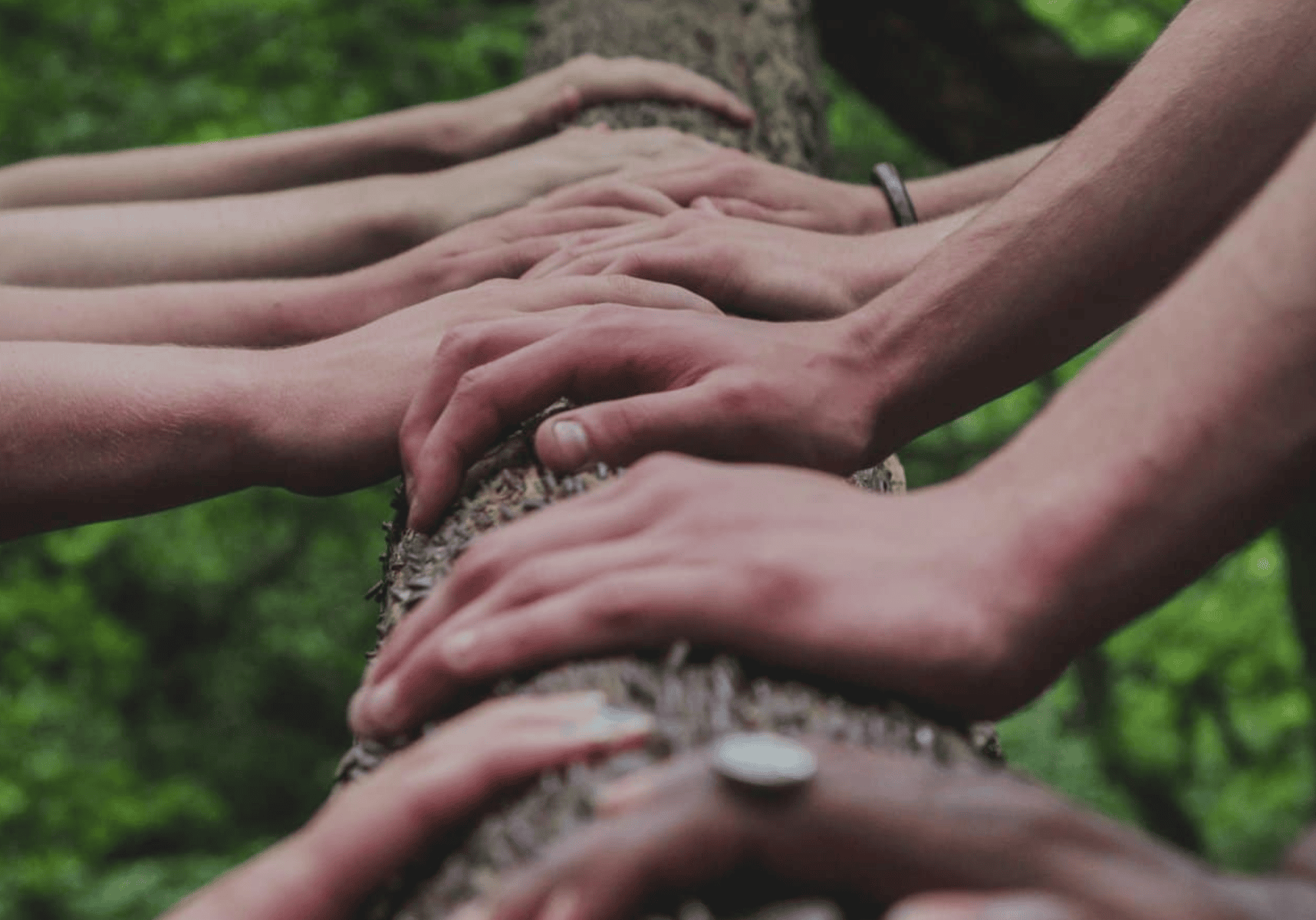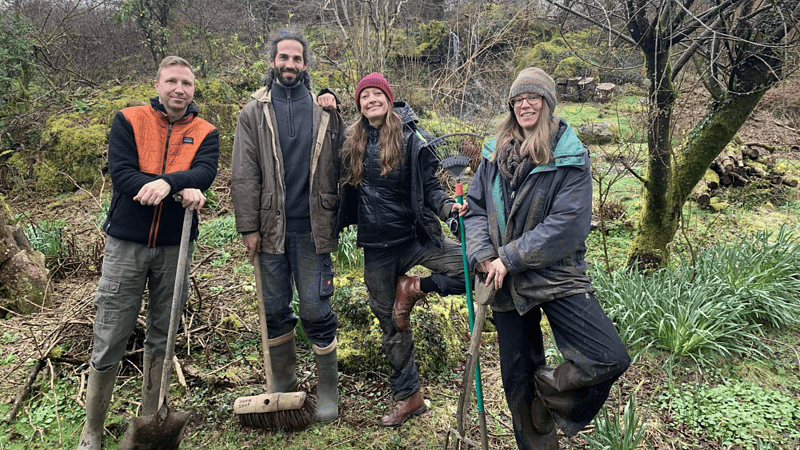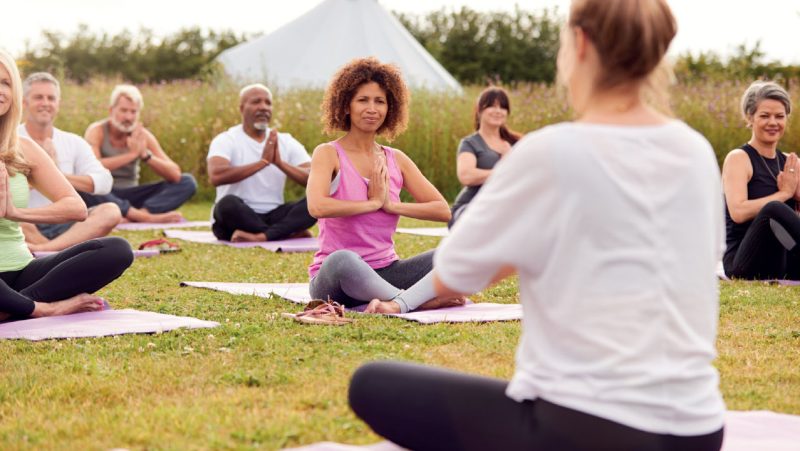
Navigating Competition in the Yoga Community
Exploring the Shift from Competition to Cooperation in Yoga Practice and Teaching - By Laura Parr
Reading time: 3 minutes
There's this idea inherent in most of our systems that we should compete against one another. The idea runs deep. In fact, you might say, we are thoroughly entrenched in it. From classroom rivalry to conflict in the boardroom, competition has long been the norm. There's an argument that a little healthy competition enhances teamwork, but conflict can easily turn toxic.
The yoga world is not immune to this. You might have experienced competitiveness in yoga classes you've attended. It can range from the obvious to the subtle. A teacher praising those who are able to perform particularly difficult physical feats, for example, can spur rivalry.
If you teach yoga, part of your job is to encourage your students not to compare themselves to others. But while the first of Patanjali's yamas, ahimsa (do no harm) is something every yoga teacher is familiar with, it can be hard to remember to take ahimsa off the mat.
A missed opportunity
When I first started teaching over a decade ago, there was another person in my locality with way more experience than me that I thought could be a mentor. But that person saw me as competition and worked hard to 'out me' in the community. I realised this person had been badmouthing me to potential students, calling my fitness to teach into question.
It caused me a lot of anxiety and I worried more than I might have done that I wasn't good enough. But now, with the benefit of hindsight, I see that my potential mentor must have been anxiety-ridden too. After all, you don't behave that way when you feel confident in your own knowledge and practice.
It could be argued that all that stress made me a better teacher because I worked super hard to be the best I possibly could. But it also meant I never developed that relationship with one who could have been a mentor, and that's a real shame. It's not unusual. Google 'competition' AND 'yoga teachers' and you'll find that the industry is rife with this kind of thing.
We've been using the wrong metaphors
In the 1800s, Charles Darwin believed that trees in a forest would compete with one another for nutrients. We now know that trees communicate through vast networks, sharing water and nutrients via fungal highways and looking after sick family members. However, Darwin's ideas continue to have an impact and his survival of the fittest mentality endures in all aspects of society and even science.
In Notes on Complexity, Neil Theise reminds us that while we call our cells building blocks, they are nothing of the sort. They do not stack neatly upon one another. We are not machines. In the past, we imagined that our very bodies were made of pulleys and levers. We taught and learned anatomy as though our physical forms were nothing more than a selection of parts that could be cut out and stitched back together.
Looking through the lens of holism, we now know that our fascia, the so-called connective tissue found throughout our bodies, does way more than hold everything together. Rather than our muscles being connected to our bones, our muscles are themselves composed of myofascia and this is what wraps around our bones: it's all interconnected.
Modern science also tells us our bodies are home to trillions of bacteria. Our bodies are collections of ecosystems, each of them home to vast numbers of microorganisms. This new knowledge begs us to ask ourselves who exactly we are. Far from being the biomechanical beings that traditional anatomy told us we were, we are biomotional creatures with subtle bodies through which vital energies flow—just as the ancient texts taught us!
We're not as individual as we thought
What does all this have to do with one yoga teacher jostling with another for prime place in a community? As we update our understanding of how the universe operates, it makes sense that we also reconsider the ways in which we work together within this universe.
Suppose we stopped seeing ourselves as separate beings marching around with all the answers, and instead opened up to the idea of being part of a greater picture. It would open us up to a vastly more fascinating journey. And after all, isn't that why we're here?
How to collaborate intelligently
You can't just go out there and work with anyone and everyone. And collaboration needn't even mean working together on classes, workshops and retreats. It could be as simple as getting together with a few fellow practitioners and teachers from time to time to talk about your experiences and findings.
Have a clear idea of what your collaboration means
If you worked as part of a care or nursing team you'd have regular supervision sessions where you'd get to talk about anything that was bothering you at work. This isn't the case for lone yoga teachers, though you might be working with people with quite challenging needs.
It can be a great idea to have regular meetings with other lone workers, but make sure you respect your clients' confidentiality. Even if you're not a teacher, you can make use of regular meet-ups to discuss your practice, progress, and any barriers you've come up against.
Choose who you work with wisely
If there are people in your community you think might cause trouble or defame you, it's simple. Don't work with them. Collaborative relationships need nurturing, and so while you don't need to be friends as such, you do need to get along, at least on a basic level.
Be authentic
Don't copy blindly from those around you. Only teach what you've practiced, the things you've really made a part of your life and wholeheartedly know to work. But don't be afraid to be inspired by others. If you learn a practice or technique from someone in your community that works well for you, use it and by all means teach it. And don't be afraid to credit the person it came from.
Respect experience
Nurture those with less experience and seek support from those with more. But remember, even those with less experience could have valuable lessons to teach you. Never assume anyone's knowledge is less valid than yours, and if someone comes to you for advice, treat it as a sacred learning opportunity for both of you.
Final thoughts
Building this kind of interconnected community based on trust and mutual respect will be infinitely better than one based on cloak-and-dagger paranoia. As we move into a more uncertain future, both climatically and structurally, we're going to need all of the support and resilience we can muster.





